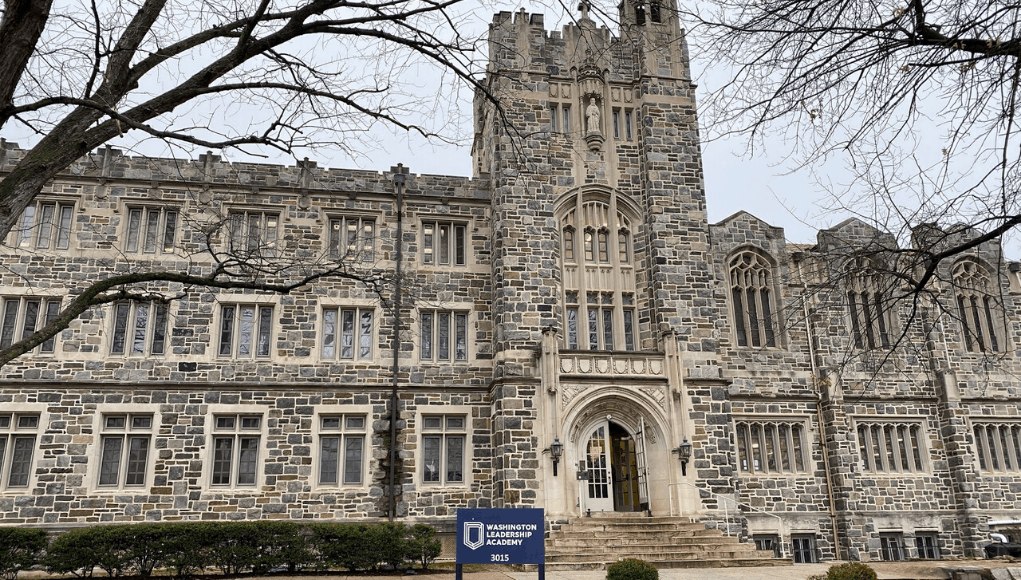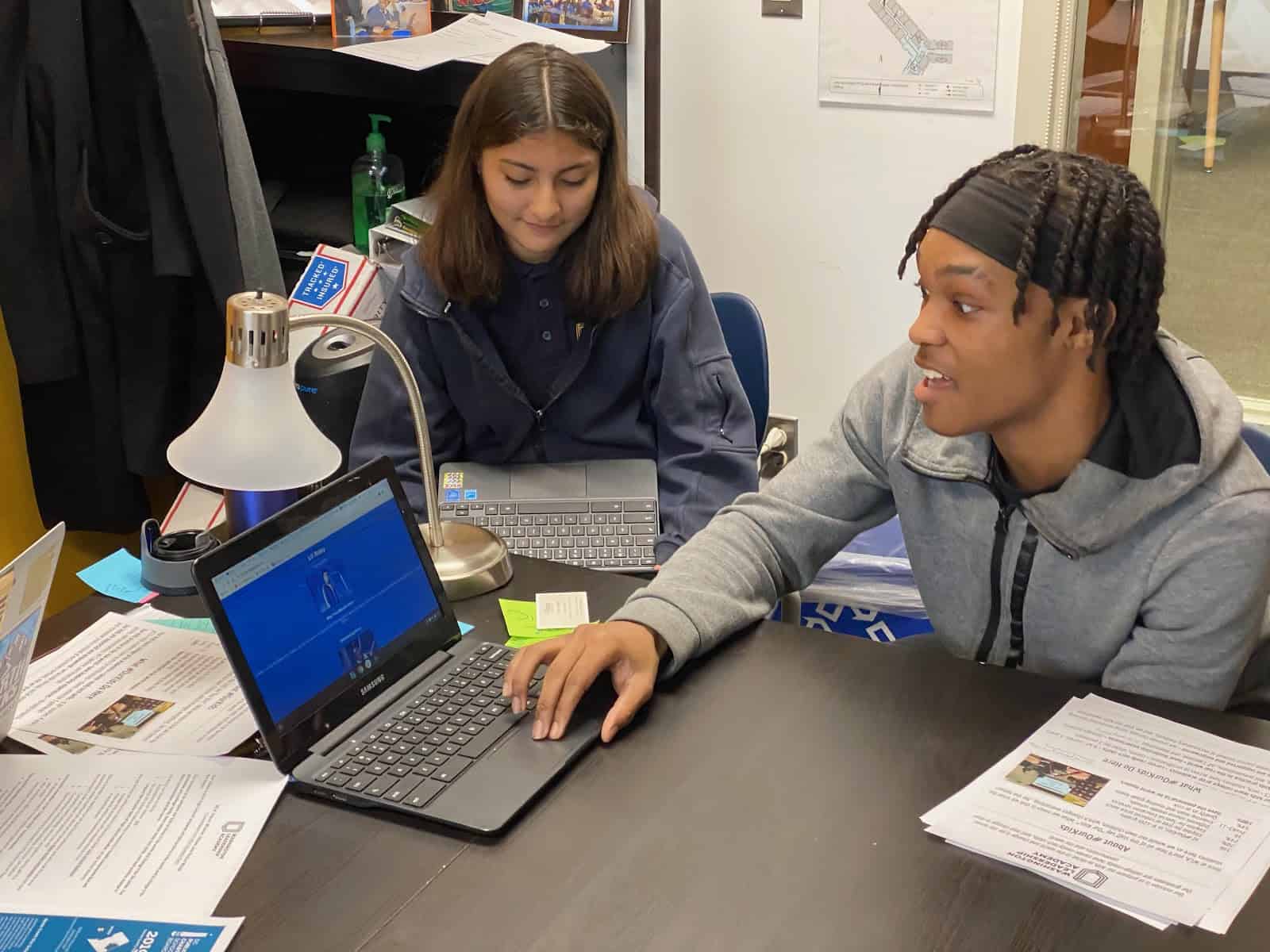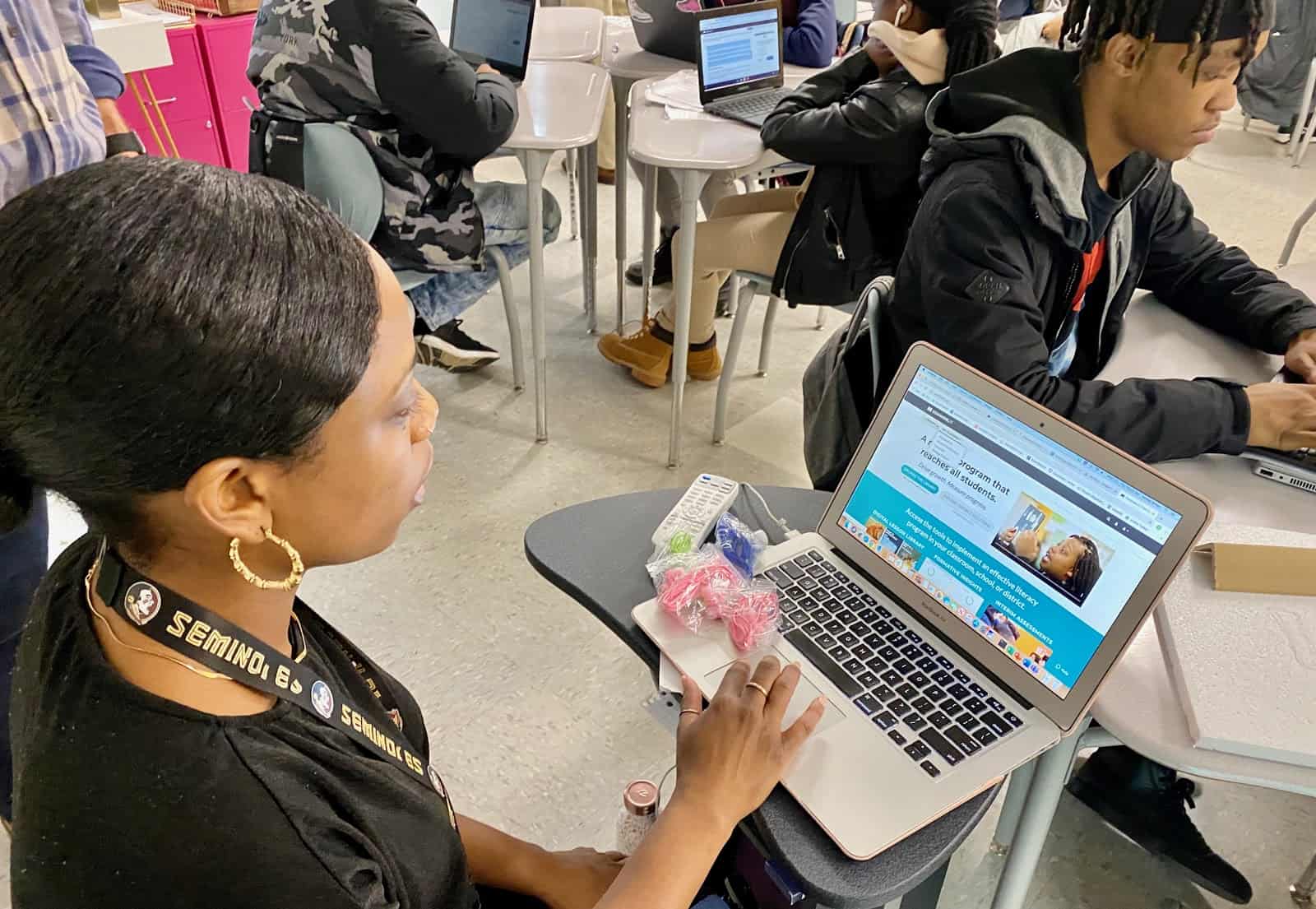D.C. Students Learn New Skills In An Old Building: Washington Leadership Academy

In a century-old building that once housed a seminary in northeast Washington, D.C. is a great college prep high school. It’s a bit “Oxford on the outside, Google on the inside.”
With four years of computer science, Washington Leadership Academy (WLA) students will graduate with job-ready skills and preparation for college. Opened in 2016, the first class will graduate in June. The senior hallway is full of their acceptance letters to local and national colleges and awarded scholarships.
WLA serves about 400 students, the majority come from low-income neighborhoods in northeast and southeast D.C. A quarter of them qualify for special education services. Many enter with reading and math levels several years behind. Despite challenges, the WLA staff believes “100% have the potential to be world leaders.”
WLA students take four years of computer science and coding courses. Freshmen are enrolled in a broad introduction to computer science course. Sophomores take AP Computer Science Principles (and account for the large majority of underrepresented groups that pass the test in D.C.).

Juniors study digital art and produce remarkable computational art that lines the hallway (and sometimes turns into a side hustle business for them). Seniors learn Python or take AP Computer Science (a Java programming class).
Students also take a computer science art course and a variety of senior courses, including AP Computer Science A, and a CIW Web Development Certification course. All WLA students build websites, and some even create sites for paying clients. When a teacher got married, students built him a wedding website. Some students learn how to build virtual reality in an afterschool club.
Literacy Development
WLA has worked closely with nonprofit CommonLit on a reading and writing application used in ninth and tenth grade English. Grade level reading is available in thematic units with voiceover text available for students who benefit from it.
Formed by middle school teacher Michelle Brown in 2014, CommonLit’s free reading platform has been accessed in over 60,000 schools. It includes 2,000 high-quality reading passages for grades three through 12 supported with assessments, data, and teacher professional learning. The organization has been recognized with awards and funding from leading foundations.
As seniors, students study AP Literature and participate in the AP Capstone program.

The fully loaded curriculum that CommonLit is co-developing with WLA is being used in 40 schools across the country, including both public and charter schools. The team anticipates reaching 100 next year, with demand already in the thousands.
Shaping World Changers
A daily advisory period promotes sustained relationships, within which students develop a sense of identity and direction. As freshmen, they ask, “Who am I?” Sophomores dive into college and career options. Juniors explore how they can blend personal and professional interests.
WLA students learn how they can make an impact on the world. They learn to practice social justice. They have a say in the operation of the school. They build campaigns. And they develop leadership skills by serving in internships as juniors.
Senior Jerome Foster completed an internship with Congressman John Lewis. He participated in protests with Jane Fonda and testified at the United Nations with Greta Thunberg. Last week was his 57th Climate Strike in front of the White House. “I am advocating for the Climate Change Education Act to pass boh the house and the senate,” said Foster. He is the founder and executive director of OneMillionOfUs, an initiative to turn out the youth vote in the 2020 election. “He’s an example of what can happen when we empower kids to make a difference,” said WLA Executive Director Stacy Kane.
For more, see:
- Special Ed Teacher to White House Tech Advisor
- 100+ Middle & High Schools Worth Visiting
- 10 XQ Super Schools Announced: Leading the Way in Rethinking High School
Stay in-the-know with innovations in learning by signing up for the weekly Smart Update.
This blog was originally published on Forbes.







0 Comments
Leave a Comment
Your email address will not be published. All fields are required.